CONFIDENCE IN GROUNDWORK WITH YOUR HORSE
 .
.As we all know, problems don’t only occur in the saddle. In fact, some horses are the most well behaved when being ridden, yet problematic when handling from the ground. Everyone has different opinions on training and what is right and wrong, and every horse is different. This post won’t solve all your problems and tell you how to overcome everything, but it will give you some things to think about that might help you behave in slightly different ways, or look at things differently which in turn will hopefully help you.
.
One of the issues some people suffer with is when communication is misunderstood from both sides. For example, imagine something making your horse jump when in hand, maybe he/she becomes a little flighty with their head higher in the air looking about a bit and you can tell they’re distracted. This then makes you a little more nervous, maybe you hold them a bit tighter, give them a jolt on the lead-rope and try to carry on but you now feel on edge with your horse in the air; your horse senses this and so instead of carrying on normally after whatever made them jump has passed, they stay tense because they can feel that you are tense and therefore feel there must be something to be tense about. You become more tense from their behaviour and this can begin a downward spiral. You may interpret this behaviour as the horse being badly behaved and tell them off, which only makes them even higher strung because they don’t feel safe and relaxed.
.
On the flip side, another horse may be a pain in hand because of how relaxed they feel with you and so they ignore the rules because they’re far too excited about what they’re doing. This is why certain advice doesn't work for everyone, you know your horse and so you'll know when certain advice isn't for you and this is the same reason that there's no one way for things to be done, but you can learn to take a step back and really think about what is going on. Most problems from the ground are related to miscommunication.
.
Here’s 5 things to remember that might help:
.
1. Consistency with rules and rewards.
.
It is very important to be consistent. Horses work well when they know what they have to do and when they know what comes from it. It is also important to make sure that you are rewarding the good behaviour. It is no good constantly telling your horse off when they do something wrong yet never rewarding them when they do it right and with everyday life in the way, it's very easy to forget about telling your horse well done with the simple things. If you forget the praising, it’s going to be a lot harder for them to understand why they should do something for you and they simply won’t be so willing. A calm, well done voice to them and stroke is all they need to appreciate this as a positive outcome because attention from you is a reward.
.

.
2. Sometimes pretending a problem isn't there can help it disappear...
.
There are certain situations where ignoring something can be a great way of dealing with it. The whole idea that what someone is doing is for attention and once they realise that’s not the way to get it they’ll try something else. A horse picks up your nerves, so whether on or off the horse, them feeling something from you is likely to enlarge the way they’re acting because they feel your insecurity and it makes them worry.
.
I have a great example. My last mare used to cow-kick every time you’d be sorting her rugs. If you attempted to ignore it and worked round it focusing only on getting the job done, she would stop after a few. However, if you told her off she’d argue back, get a lot worse and it would turn into a very stressful and more importantly, unnecessary situation.
.
Unlike some circumstances, this was a job that in one way or another needed to be done and therefore there was no getting around dealing with the situation. I knew this was to do with her own insecurities and that she’d improve once she trusted me more, and so I’d work calming and carefully around her, ignoring the bad behaviour and rewarding the good when she was calmer.
.
Don’t take this in the wrong way, I am not saying bad manners like that in this example should be accepted and worked around, I am saying that feeling that you have to do something negative back to have been in charge is not the only way of training, and just because you haven’t got a quick fix, you don’t need to feel the issue is big and urgent. If I let my mare’s cow-kicks stop me from putting her rug on, I would be adding fuel to the fire. However, ignoring her behaviour but still doing what I needed to do (changing the rugs) was the best answer to improving her behaviour as she got more used to the routine, gained more trust in me and became more and more relaxed every day that she realised I wasn’t going to come in all guns blazing and tell her off which was actually why she had her defences up in the first place.
.
Over just a week or so it went from aggressive cow-kicks, to no kicks but she was still tense holding her head up and ears back, but eventually once she grew to trust me, it turned into her carrying on munching her hay without even noticing I was doing rugs. The best outcome I could wish for, and that’s simply because from consistently ignoring and acting like nothing was wrong, she became more confident in me, she accepted I was in control and doing what I needed to do however she decided to act to put me off, she was less insecure about what I was doing and was going to do, and she learned that however she behaved, all I was going to do was to change her rugs calmly.
.
Often your horse’s actions are because they feel insecure about what you’re doing. Trust in you overcomes this. Telling them off is sometimes exactly what they were worried about in the first place and why they acted up in the beginning, therefore answering their behaviour negatively only makes them even more defensive and less trusting in you and from there you can create a downward spiral in more areas that one.
.
What you have to remember is that what looks like negative behaviour towards you isn’t always as it seems, respecting them and trying to understand what their behaviour is about teaches them to trust in you and in turn their respect for you will grow massively and you’ll create an incredibly powerful bond. This leads us on nicely to the next point.
.

.
3. Bonding with your horse. “Think about what is making you nervous. It’s usually due to not knowing or trusting your horse very well. If you think this may be the case then spend time on the ground with the horse: grooming, stroking, feeding, grazing, get to know them.” - Daisy
.
Your horse is much more likely to respect you and try to understand what you are asking if you make that effort back. Your horse is always communicating with you; slowing down and taking a second to engage with them goes a long way. Explaining to them what you are doing and talking to them can be key to creating a stronger bond and in turn your horse will care more about behaving and doing as you ask.
.
Daisy made a great point here. Spending time with your horse is not just nice for your horse, it helps you get to know them in lots of different ways. The more you know a horse, however the behave, the more confident you feel. If you feel nervous around a horse spend as much time with them as you possibly can.
.

.
4. Don’t just think about how your horse is making you feel, think about how you are making them feel.
.
An example of this is when your horse naps coming in from the field. Why are they napping? The simple and usually true answer in that staying in their field grazing and having a lovely time with their friends is far more appealing than coming in to do work or whatever else you are wanting to do with your horse. You know this, and it’s easy to feel frustrated and think your horse is simply such an annoyance.
.
Or you could work on changing your horse’s opinion of what coming out of the field means. Every so often bring your horse in just for something very positive: a yummy feed, 15 minutes of grazing somewhere nice, a massage with the curry comb, then turn them straight back out again. This can also be a great opportunity to fit in quickly checking them over. Doing this kind of thing in-between days where you’re only bringing them in to work shows them that you are giving back, that you respect them and want them to do what they enjoy too and more often than not they’ll become better at coming in whatever time of the day.
.
Once you show you respect them and the things they like to do and it’s not all about you, your bond will grow stronger and they will see being with you (even if that means working) as the most positive thing. I went from a horse refusing to walk even to the gate of the field with me for months, to coming to call and following me everywhere I went. Nothing worth doing is a quick fix. It’s all about give and take.
.

.
5. “I feel that the best way to gain confidence is to put yourself through as many different experiences in the equestrian environment…” – Kyran
.
Kyran makes a great point here, and one that you can take into your own hands. Push yourself out of your comfort zone. If you don't feel in charge or strong from the ground, work more often on ground work, lunging, long-reining, free-schooling. These are great ways to help you improve your confidence in taking control and feeling in charge, and for your horse to get used to taking you seriously and listening to your commands from the ground. If you're worried about doing this by yourself, have a friend or a teacher to help you.
.
Remember all the first's you've had in your equestrian life, and all the things you've overcome that you think of as nothing now. Once upon a time you would have found lots of things nerve-wracking. Challenging yourself teaches you so much and reminds you of how strong you are. It gives you a sense of pride when you achieve something you were nervous about and nothing feels as good as that! Keep pushing, the more situations you deal with, the less situations that scare you.
.

.
I hope you enjoyed this post! Take and leave what we have said as you wish. As I always say, everyone is different, every horse is different. We are here sharing our own thoughts and experiences, they may not be right for you and no one way is correct or incorrect.
.
These posts are simply to help you think about things in other ways that might help you. If you are having any serious or potentially dangerous issues with your horse we always urge that you to seek help from a local professional.
.
If this post or any of the others from our confidence series have helped you, I would love to know! Drop me an email at danielle@dvrequestrian.com with your story!
If this post or any of the others from our confidence series have helped you, I would love to know! Drop me an email at danielle@dvrequestrian.com with your story!




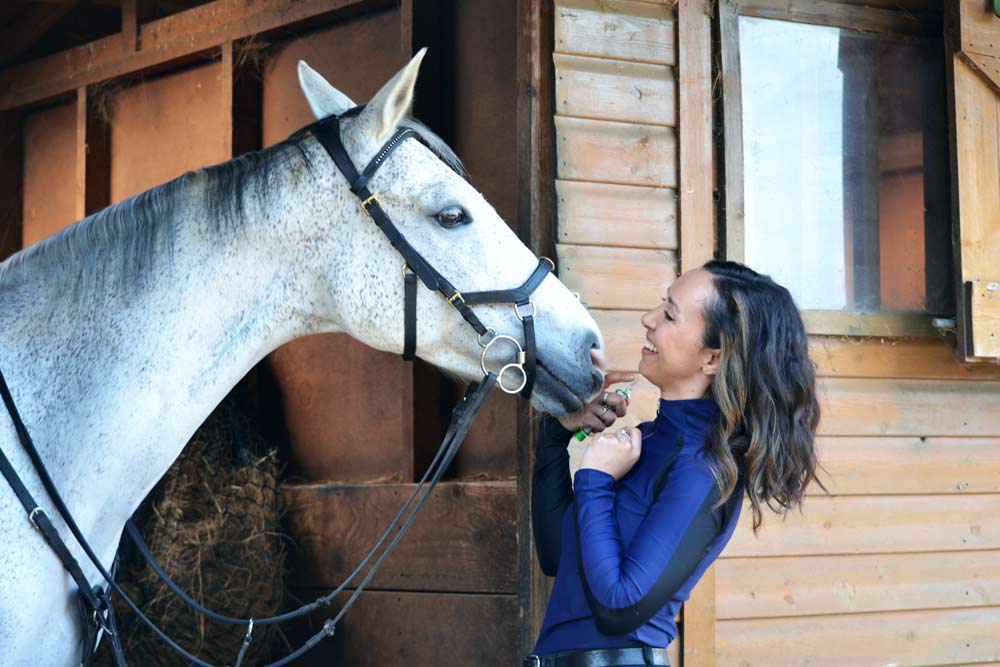
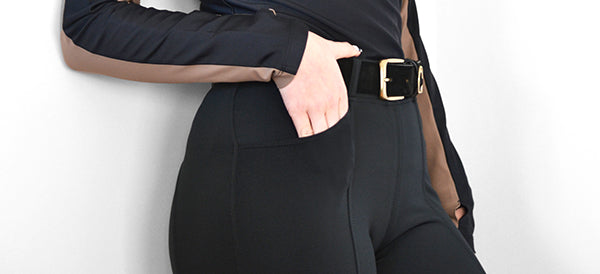
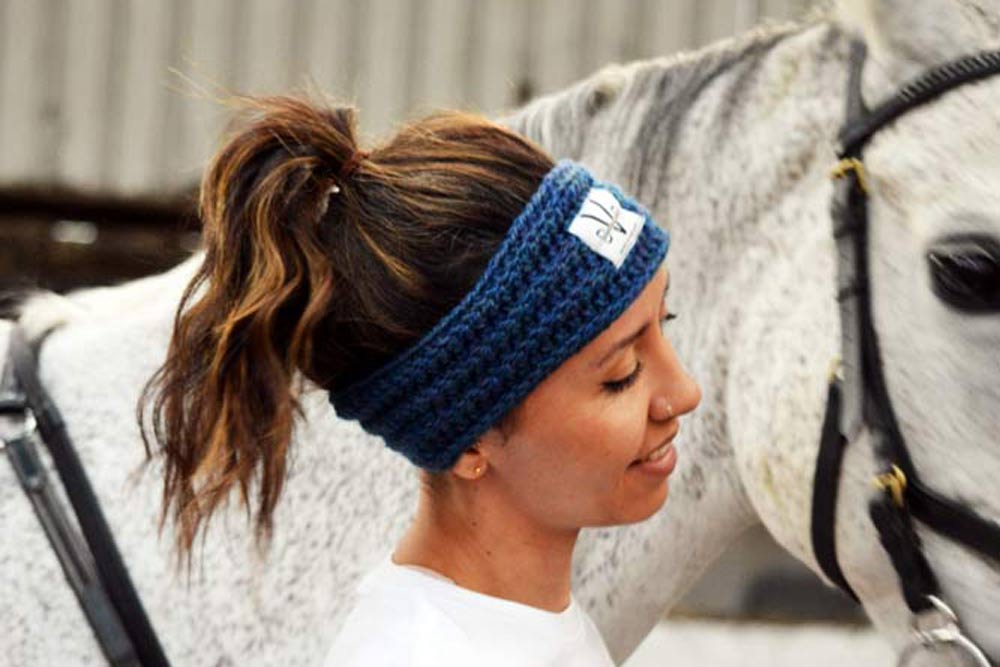
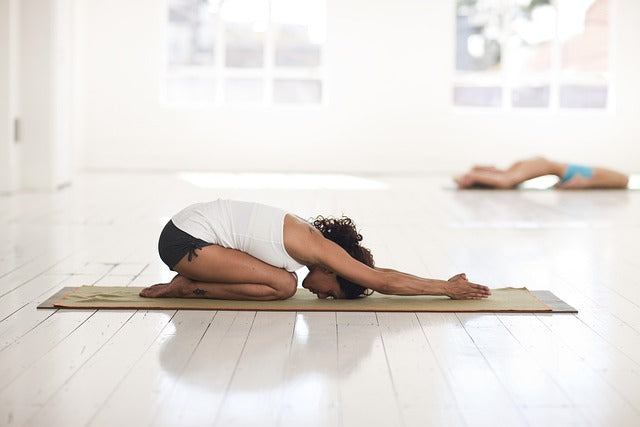
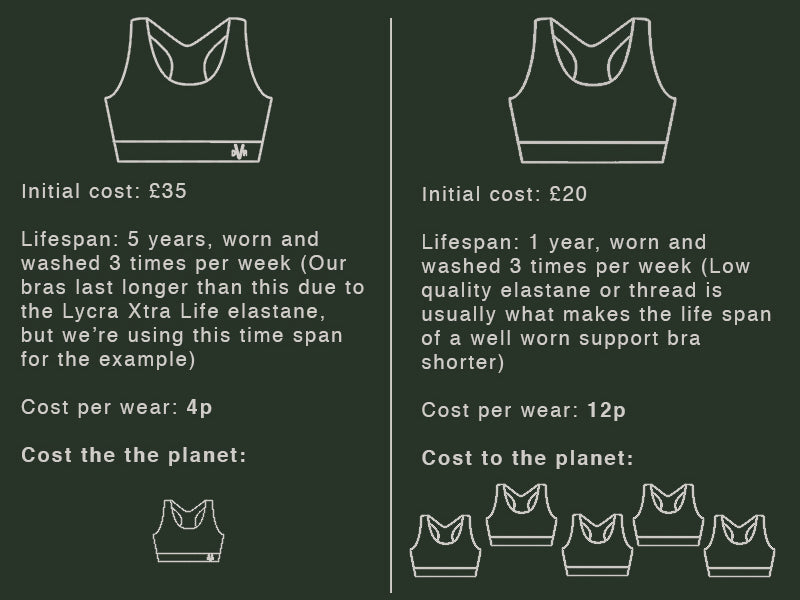
Leave a comment